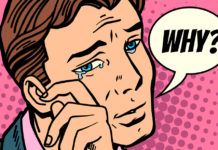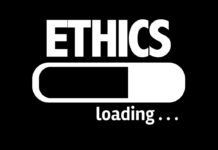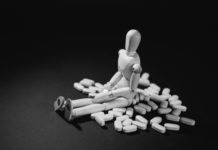Finding Meaning in Suffering: How Existentialism Can Help
Suffering is a universal human condition. But without making meaning of suffering, it can overwhelm us. Finding meaning in suffering might help to find the will to survive when life is difficult.
Insane Medicine, Chapter 5: The Manufacture of Childhood Depression (Part 1)
The medicalisation of our emotional lives has led to a horrific cultural shift in which we, and our children, have become alienated from and suspicious of our emotions, chipping away at our natural resilience.
No, Autism Is Not Over-Diagnosed
Autism is an umbrella diagnosis at this point. The broadness of the diagnosis doesn’t tend to be useful to clinicians. But it is very useful to the individuals who live with it.
Exploring Psychiatric Drug Withdrawal: A Town Hall Discussion Series
Our new discussion series aims to explore what we do and don’t know about safe withdrawal from antidepressants, antipsychotics, benzodiazepines and stimulants.
The Ups and Downs of Online Therapy
Now that the novelty has worn off and we are able to step back and analyze the situation, what does the switch to teletherapy portend for our profession?
New FDA Study Shows Benzodiazepines Can Cause Long-Term Injury
The FDA has finally acknowledged the adverse effects of benzodiazepines, the dangers of withdrawal, and that the current packaging does not sufficiently warn of these harms.
Insane Medicine, Chapter 4: The Manufacture of Autism Spectrum Disorders (ASD) (Part 2)
No one has come near to finding a genetic basis or a characteristic neurological abnormality for autism, and as a result there is no biological marker or brain scan used to diagnose ASD.
Social Adversity, Mental Distress, and the Theatre of the Oppressed
The theatre of the oppressed directly challenges societal problems of oppression. Here the involved learn much from the enactment—concrete possible solutions and possible practices of resistance.
Dual Diagnosis Anonymous: Peer Support for Those Who Need It
What worked for participants is the compassionate, welcoming, inclusive and non-judgmental approach of DDA. It is about peer support, role modelling, hope, building skills… acquiring self-confidence and building a new identity.
Insane Medicine, Chapter 4: The Manufacture of Autism Spectrum Disorders (Part 1)
Because the “scientists” who study, categorise, and establish guidelines for autism can’t find anything definitive, they resort to scientism. Over time, it becomes part of our cultural “common sense.”
Does the NASW Code of Ethics Prohibit Peer Work?
An analysis of the National Association of Social Workers Code of Ethics’ regulations on dual relationships: Indications for self-disclosure and problematic consequences for peers entering the social work workforce.
Stop Saying This, Part 6: It Takes Two, Life’s Not Fair, and More
It’s common that both people are contributing to the issue in one way or another. However, there is at least one instance that renders “it takes two” unavailable for blanket-statement use, and that is abuse.
Insane Medicine, Chapter 3: The Manufacture of ADHD (Part 2)
Sami Timimi discusses the lack of findings for a genetic or neurobiological basis for ADHD, and explores the short- and long-term effects of stimulant drugs.
Understanding Mental Illnesses, and Ourselves
I trained in psychiatry in the 1950s. I saw psychiatry switch from trying to help patients to understand themselves better to trying to find a drug that would relieve their symptoms.
Insane Medicine, Chapter 3: The Manufacture of Attention-Deficit/Hyperactivity Disorder (ADHD) (Part 1)
Both the idea that there are some characteristic brain-based abnormalities for those diagnosed with ADHD, and that the medications used have specific properties that target a disease process—like a chemical imbalance—are false.
Who’s to Blame for the Lost Soul of Psychiatry?
An interview between Drs. Aftab and Pies reveals a deep mistrust of patients' reports of their own experiences, and devolves into a game of semantics in an attempt to prove psychiatry's relevance.
Stepping Into One’s Inner Radiant Space
It is hard to step out of the space of diagnoses because of the power it holds. The “doctor” who inflicted on you the awful label of “schizophrenia” or “bipolar” damages you because of the power he holds.
Insane Medicine, Chapter 2: The Scientism of Psychiatry (Part 2)
Paying attention to the science tells us that we need to look beyond formal services. People need connection and meaning as well as basics such as safety, housing, and work.
When Psych Diagnosis Means Life-or-Death
One label in the DSM that applies to cognitive abilities—“Intellectual Disabilities”—is crucial in determining whether people accused of crimes in some US states will be executed.
The Need for Acknowledgment of Context Within Approaches to Mental Distress
Mental distress is often perceived as something devoid of context, as an individual medical condition or a failure instead of a human condition linked to the social context one exists in.
The Reckoning in Psychiatry Over Protracted Antidepressant Withdrawal
Medically-induced harm—affecting tens of millions of people worldwide—has taken the field decades to take seriously.
The Spin Doctors: “ADHD” Research
We now spend over twenty billion dollars a year on treatment for something called “ADHD.” For that amount of money, we could pay the mid-career salaries of an extra 365,000 teachers or 827,000 teachers’ aides.
Insane Medicine, Chapter 2: The Scientism of Psychiatry (Part 1)
Wherever you find mental health services to have expanded, you find a parallel increase in the numbers who have been classed as disabled due to a mental health disorder.
The Double Standard at the Heart of Peer Services
There is clear evidence of a double standard and attitude that favors and privileges one side of the binary—the clinicians—over peers. This discrimination must be made visible and revealed to mental health advocates and changemakers.
An American History of Addiction, Part 3: Mr. Booze
Coupled with a burgeoning new movement (AA) for temperance members to refer to, the movement changed from a public policy interest group to what we would now call a treatment-based outreach organization.

































